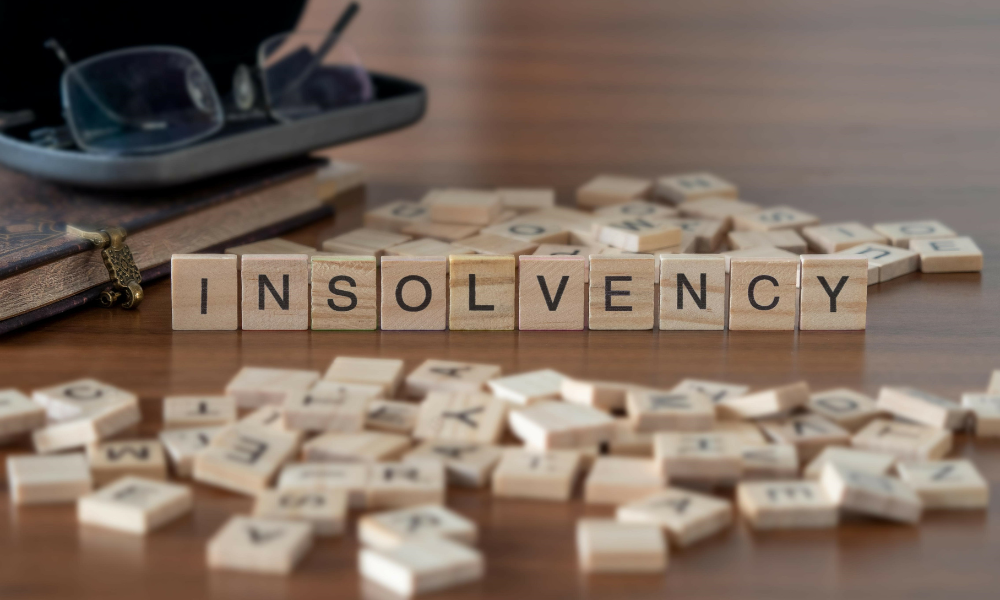
What Do Insolvency Lawyers Do and When Should You Call One?
Insolvency is a complex area of law that deals with individuals or businesses unable to meet their financial obligations. As financial difficulties arise, many may find themselves in need of professional guidance. Insolvency lawyers play a crucial role in this process, providing expertise and support to navigate the often challenging landscape of financial distress. This article explores the functions of insolvency lawyers, the circumstances that may necessitate their assistance, and how to choose the right one for your situation.
Understanding Insolvency Law
Insolvency law encompasses various legal processes and frameworks designed to address situations where individuals or companies cannot pay their debts. It is essential to understand the distinction between personal and corporate insolvency, as the legal implications and processes can differ significantly.
Personal Insolvency
Personal insolvency occurs when an individual cannot pay their debts as they fall due. This situation may arise from various factors, including unexpected medical expenses, job loss, or poor financial management. In Australia, individuals facing insolvency can consider options such as bankruptcy or debt agreements, both of which have specific legal ramifications. Bankruptcy, for instance, can offer a fresh start by discharging most debts, but it also comes with restrictions, such as limitations on travel and certain employment opportunities. Furthermore, the stigma associated with bankruptcy can weigh heavily on individuals, impacting their personal and professional lives.
Moreover, the process of entering into a debt agreement can provide a more manageable alternative for those who wish to avoid the severe consequences of bankruptcy. This arrangement allows individuals to negotiate a repayment plan with their creditors, which can be beneficial in maintaining some level of financial stability while addressing outstanding debts. However, it is crucial for individuals to seek guidance from financial advisors or legal professionals to navigate these options effectively and to understand the long-term implications of their choices.
Corporate Insolvency
Corporate insolvency, on the other hand, pertains to businesses that are unable to meet their financial obligations. This can lead to various outcomes, including voluntary administration, liquidation, or receivership. Each of these processes has distinct legal requirements and consequences, making it imperative for companies in financial distress to seek professional advice. Voluntary administration, for instance, allows a company to appoint an administrator to assess its financial situation and propose a plan to creditors, potentially saving the business from complete collapse. This process not only aims to maximise the chances of the company’s survival but also seeks to provide a better return for creditors than immediate liquidation would.
In contrast, liquidation involves the winding up of a company’s affairs, where its assets are sold off to repay creditors. This process can be particularly complex, often requiring the involvement of liquidators who must navigate various legal obligations and stakeholder interests. Additionally, receivership may occur when a secured creditor appoints a receiver to take control of the company’s assets to recover debts owed. Understanding these processes is crucial for business owners, as the decisions made during financial distress can have lasting effects on their personal finances and reputations in the industry. Engaging with insolvency practitioners at an early stage can provide invaluable insights and strategies to mitigate risks and explore viable options for recovery.
The Role of Insolvency Lawyers
Insolvency lawyers specialise in providing legal advice and representation in matters related to insolvency. Their expertise is invaluable in helping clients understand their rights and obligations while navigating the complexities of insolvency law.
Advising Clients on Options
One of the primary roles of an insolvency lawyer is to advise clients on their options when facing financial difficulties. They assess the client’s financial situation, explain the implications of various insolvency processes, and help clients make informed decisions. This guidance is crucial, as the wrong choice can lead to severe consequences, including loss of assets or further financial distress.
Representation in Legal Proceedings
Insolvency lawyers also represent clients in legal proceedings related to insolvency matters. This may involve negotiating with creditors, filing necessary documents with the court, or representing clients in bankruptcy hearings. Their expertise ensures that clients’ rights are protected throughout the process, and they are equipped to handle any disputes that may arise.
Assistance with Documentation
The documentation involved in insolvency proceedings can be extensive and complex. Insolvency lawyers assist clients in preparing and submitting the necessary paperwork, ensuring compliance with legal requirements. This support is vital, as incomplete or incorrect documentation can lead to delays or complications in the insolvency process.
When to Call an Insolvency Lawyer
Recognising when to seek the assistance of an insolvency lawyer can be challenging. However, certain signs indicate that professional legal advice may be necessary. Understanding these indicators can help individuals and businesses take proactive steps to address their financial difficulties.
Inability to Meet Financial Obligations
If an individual or business consistently struggles to meet financial obligations, it may be time to consult an insolvency lawyer. This includes missed payments on loans, credit cards, or other debts. Early intervention can often lead to better outcomes, as insolvency lawyers can help clients explore options before the situation worsens.

Threat of Legal Action
Receiving notices of legal action from creditors can be a significant red flag. If a creditor threatens to take legal action, such as filing a lawsuit or initiating bankruptcy proceedings, it is crucial to seek legal advice immediately. An insolvency lawyer can help negotiate with creditors and explore options to avoid legal action. Click here to learn about Insolvency Lawyers Sydney: your business survival guide.
Complex Financial Situations
For those with complex financial situations, such as multiple debts or business interests, the need for legal assistance becomes even more apparent. An insolvency lawyer can provide tailored advice, ensuring that all aspects of the financial situation are considered and addressed appropriately.
Choosing the Right Insolvency Lawyer
Finding the right insolvency lawyer is essential for navigating the complexities of insolvency law effectively. Several factors should be considered when making this important decision.
Experience and Expertise
When selecting an insolvency lawyer, it is crucial to consider their experience and expertise in insolvency law. A lawyer with a strong track record in handling similar cases will be better equipped to provide effective guidance and representation. Potential clients should inquire about the lawyer’s experience with personal or corporate insolvency, depending on their specific needs.
Reputation and Reviews
Researching a lawyer’s reputation can provide valuable insights into their capabilities. Online reviews, testimonials, and recommendations from previous clients can help gauge the lawyer’s effectiveness and professionalism. It is also beneficial to seek referrals from trusted sources, such as financial advisors or accountants.
Communication and Accessibility
Effective communication is vital in any legal matter. When choosing an insolvency lawyer, consider their communication style and accessibility. A lawyer who is responsive and willing to explain complex legal concepts in understandable terms can make the process less daunting. Clients should feel comfortable discussing their financial situation openly with their lawyer.
The Costs of Hiring an Insolvency Lawyer
Understanding the costs associated with hiring an insolvency lawyer is essential for individuals and businesses facing financial difficulties. While legal fees can vary significantly based on the complexity of the case and the lawyer’s experience, it is crucial to have a clear understanding of potential costs upfront.
Fee Structures
Insolvency lawyers may charge fees in various ways, including hourly rates, fixed fees, or contingency fees. Hourly rates are common, particularly for complex cases that require extensive legal work. Fixed fees may be offered for specific services, such as filing bankruptcy paperwork. Contingency fees, where the lawyer is paid a percentage of any recovery, are less common in insolvency cases but may be applicable in certain situations.
Discussing Costs Upfront
Before engaging an insolvency lawyer, it is advisable to discuss costs upfront. This conversation should include an explanation of the fee structure, any potential additional costs, and payment arrangements. Understanding the financial implications of hiring a lawyer can help clients make informed decisions and avoid unexpected expenses.
Legal Aid and Assistance Programs
For individuals facing financial hardship, exploring legal aid and assistance programs may be beneficial. Various organisations offer support to those who cannot afford legal representation. An insolvency lawyer can provide guidance on available resources and help clients determine eligibility for assistance.

Conclusion
Insolvency lawyers play a vital role in assisting individuals and businesses facing financial difficulties. Their expertise in navigating the complexities of insolvency law can provide invaluable support during challenging times. Recognising the signs that professional legal assistance is needed and understanding how to choose the right lawyer can significantly impact the outcome of an insolvency situation.
Whether facing personal or corporate insolvency, seeking legal advice early can lead to better options and outcomes. By understanding the role of insolvency lawyers and the circumstances that necessitate their assistance, individuals and businesses can take proactive steps towards financial recovery.



